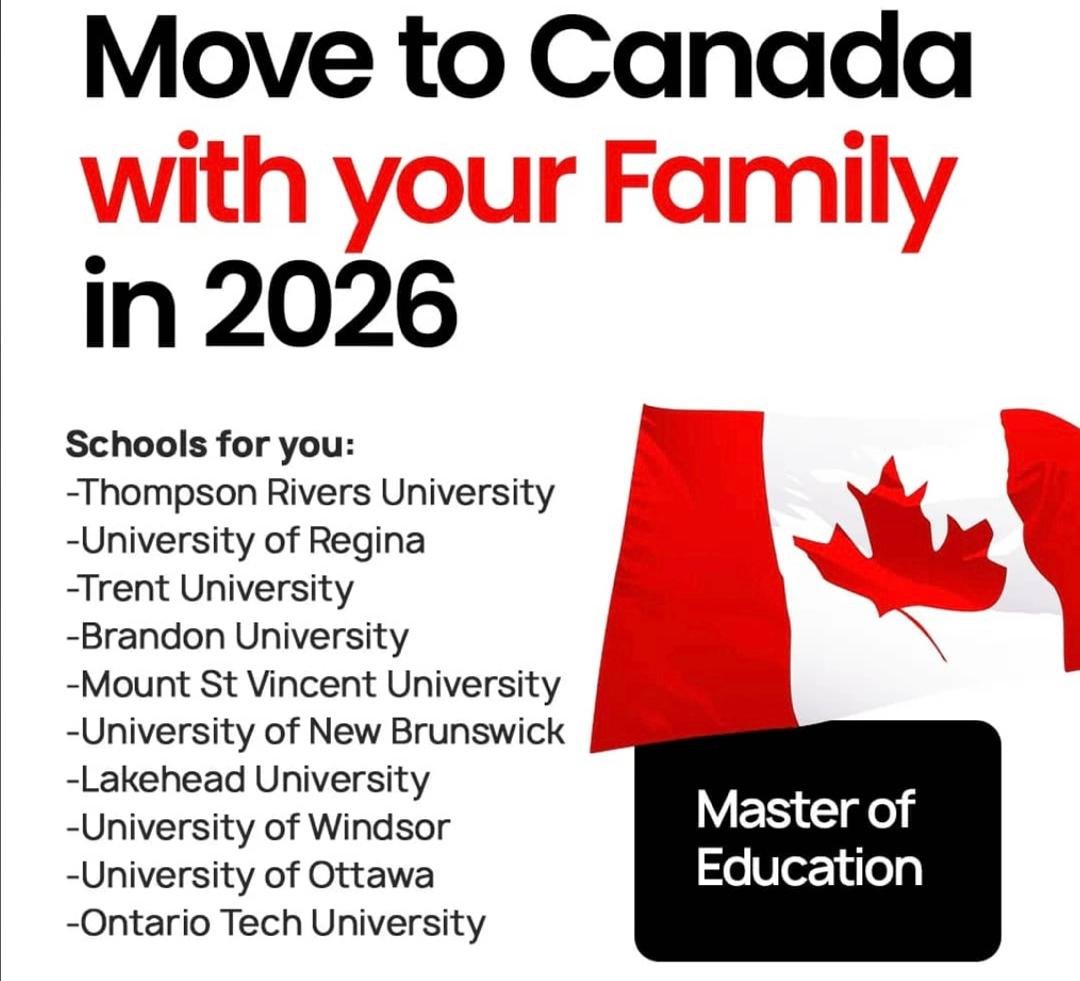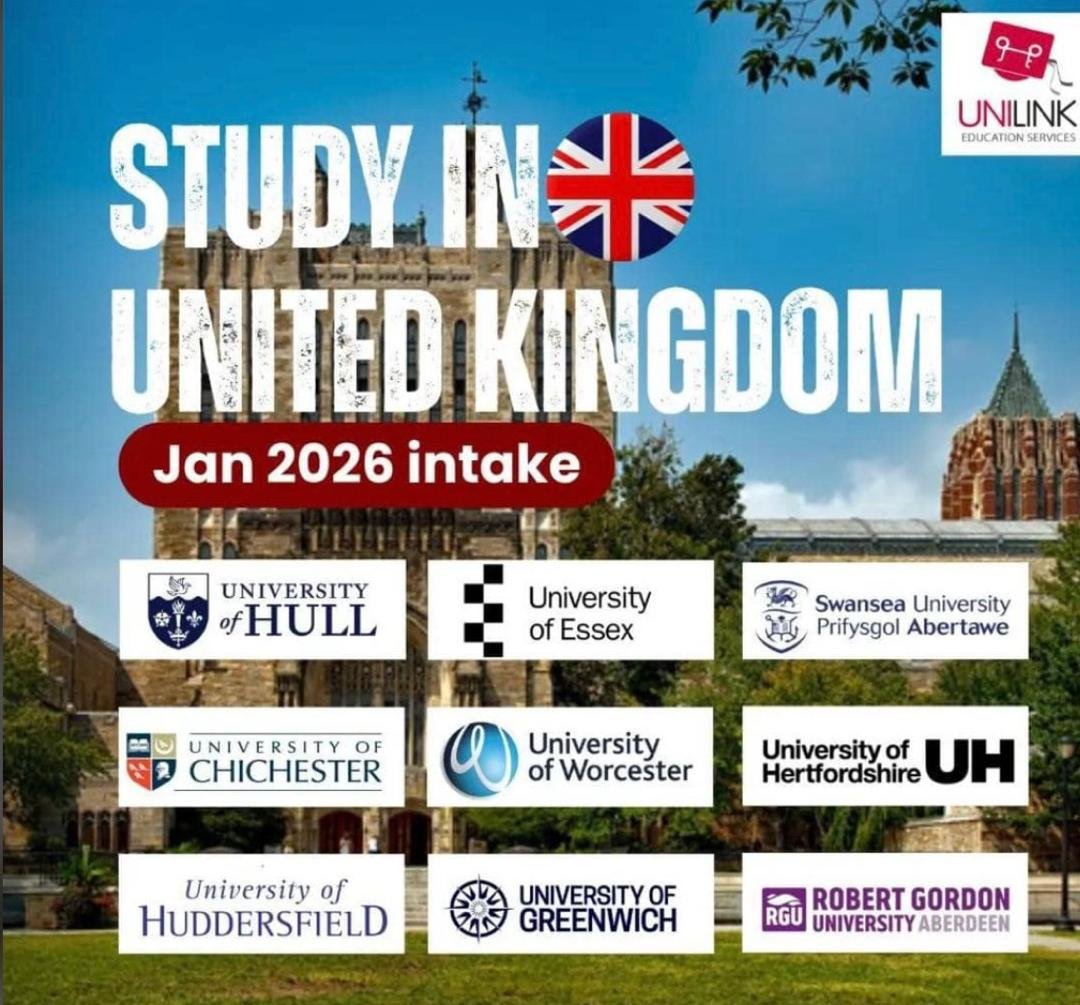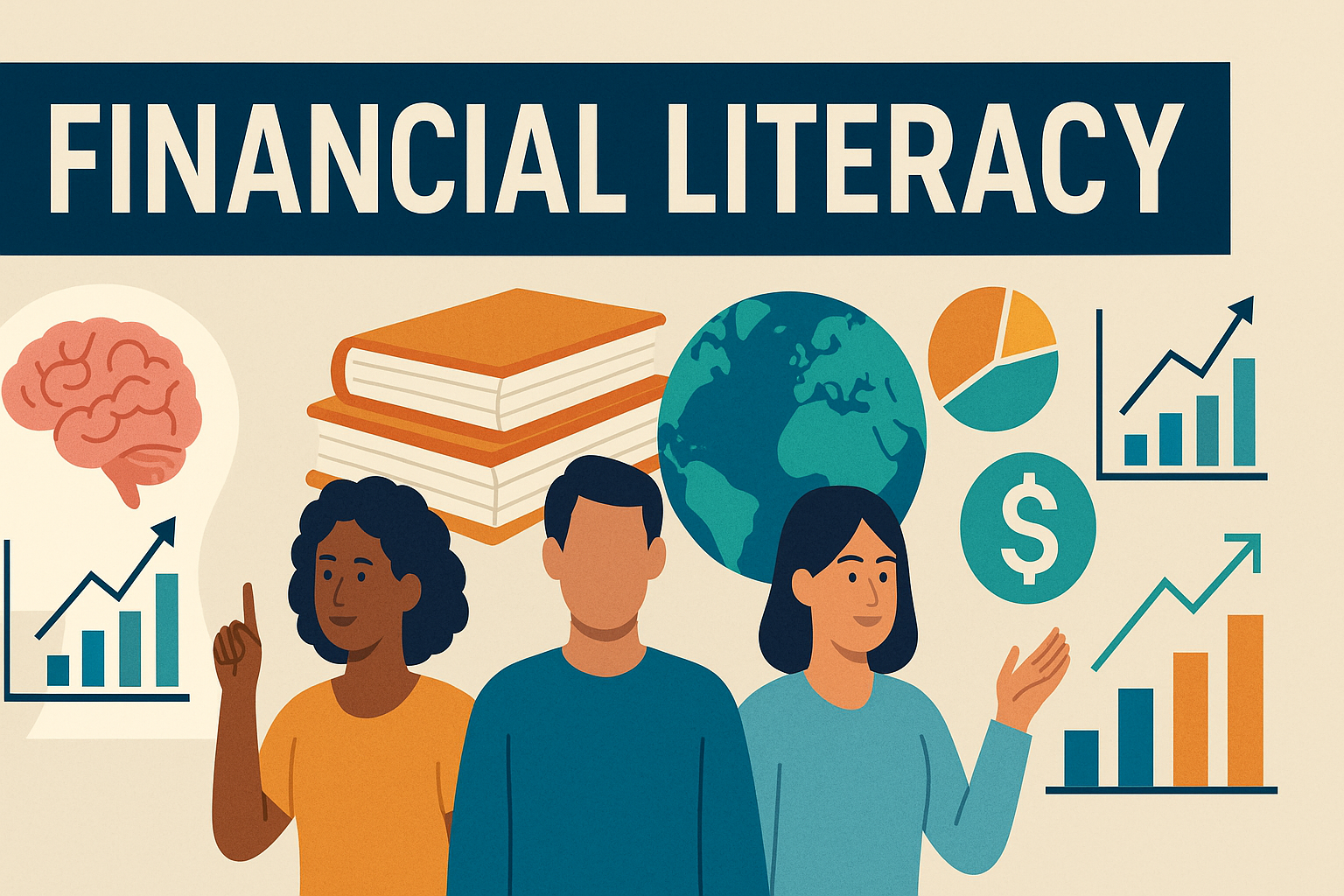Canada is increasingly popular for African students. Beyond high-quality education, Canada offers family-friendly policies: spousal open work permits for spouses of master’s students; free public schooling for dependent children (each province provides tuition-free K–12, subject to local rules); and clear pathways to permanent residency. Canadian graduates can apply for up to 3-year Post-Graduation Work Permits (PGWP) to gain Canadian work experiencecanada.ca, which boosts Express Entry points. Canada’s reputation for safety, diversity and inclusivity (with campus communities celebrating many cultures) makes it very attractive.
- Spousal Open Work Permit: As of Jan 2025, spouses of students in master’s programs (≥16 months) can get an open work permit.
- Children’s Education: School-age children of international students generally attend public schools. (Most school boards waive international fees for full-time student parents.)
- PGWP & PR: Eligible graduates can apply for a PGWP. Work experience in Canada (even under PGWP) can qualify you for the Canadian Experience Class or Express Entry, especially since Canadian credentials earn extra points.
- Safe & Inclusive: Canada consistently ranks high for personal safety and multicultural campuses. Students from Nigeria and Ghana, for example, find welcoming communities in cities like Ottawa, Toronto, and Halifax.
Below we survey 10 Canadian universities with strong M.Ed. programs suited for international students, especially from Africa. Each entry includes program highlights, why it appeals to African students, funding options, and 2026 admission deadlines (when known). External links point to official sources for more details.
Thompson Rivers University (TRU) – M.Ed. in Educational Leadership
TRU (in Kamloops, BC) offers a flexible 1.5–2 year M.Ed. program covering areas like Indigenous education, inclusive learning, and educational leadership. It’s designed for working professionals, with both Fall and January intakes. Small classes and online options make TRU student-friendly. One international graduate noted, “I felt tremendous support from the faculty… I couldn’t have had a better experience”. As an example of support, TRU provides international student advisors and even an International Student Success Coach.
Why it’s good for African students: TRU stresses inclusive practice and Indigenous perspectives, which resonates with students from diverse backgrounds. The smaller city of Kamloops is affordable and safe. TRU’s international office offers orientation and peer advising for new students.
Scholarships & Funding: TRU awards international scholarships and general Entrance Awards. (For example, the Global Chinese Scholarship, AFN Learning Pathway Award, etc.) Prospective students should review TRU’s scholarship page and consider external bursaries.
2026 Intake: Fall 2026 (September) and Winter 2026 (January) applications. For Fall 2026, apply by early 2026 (TRU’s international admissions are competitive).
Source: Thompson Rivers Univ. M.Ed. program page.
University of Regina – M.Ed. in Teaching, Learning & Leadership
The University of Regina (URegina) offers a 2-year M.Ed. in Teaching, Learning and Leadership. It prepares teachers and administrators with strong instructional and curriculum leadership skills. Regina’s program is flexible: you can pursue it full-time or part-time, via thesis, project/practicum, or course-only options. Courses are mostly in English or French, and some are co-taught with First Nations Universityuregina.ca, reflecting Canada’s diversity.
Why it’s good for African students: URegina boasts 3,000+ international students from 100+ countries, so there’s a vibrant multicultural campus. The city of Regina (capital of Saskatchewan) has a low cost of living. The faculty and Graduate Studies Office offer services like orientation and international peer mentors. URegina’s co-op placements (ranked #1 in Canada) also give practical experience.
Scholarships & Funding: The Faculty of Graduate Studies (FGSR) provides entrance scholarships. For example, the FGSR Excellence Entrance Scholarship awards up to $10,000 to high-achieving incoming master’s students. International students may also apply for provincial and federal grants (e.g., Saskatchewan Innovation & Science awards, or the Margaret McNamara Education Grant for women from developing countries).
2026 Intake: URegina’s deadline for Fall 2026 admission is Feb 15, 2026 (via OUAC) for Education programs. (Some streams also allow Winter start with an earlier deadline). Apply early, especially if seeking funding.
Source: URegina Grad Studies & Ed. Dept.
Trent University – M.Ed. in Educational Studies (Peterborough/Oshawa)
Trent University (Ontario) offers an M.Ed. in Educational Studies that emphasizes social justice, ecological education, Indigenous knowledge, and literacy. Courses often involve community and land-based learning (e.g. outdoor education electives). The program is generally 2 years (part-time), and students collaborate closely with faculty.
Why it’s good for African students: Trent is known for close-knit classes and an interdisciplinary approach, which can help international students engage deeply. Ontario’s Trent campus in Oshawa (and Peterborough) are safe cities. Trent supports learners with services like writing and learning centers.
Scholarships & Funding: Trent provides competitive graduate scholarships. For example, highly qualified master’s students may receive Ontario Graduate Scholarships (OGS) or Trent’s own entrance awards. (Undergraduates receive up to ~$40,000/year in entrance scholarships; many postgraduates secure external awards.) Students should inquire with Trent’s School of Graduate Studies about available funding for 2026.
2026 Intake: Applications for Fall 2026 (September start) open late 2025. Trent typically asks international applicants to apply by Feb 1, 2026. (Trent also has a Spring intake, but it’s limited.) Check Trent’s official site for specific deadlines.
Read More From Mobelwealth: Study in the UK – January 2026 Intake Opportunities for Nigerian/African Students
Brandon University – M.Ed. (Professional Education) (Manitoba)
Brandon University (Manitoba) offers a Master of Education (Professional Education) for teachers. The program is 36 credits (roughly 2–3 years). Students choose between a course-only route (36 credits) or a thesis route (27 credits + 9-credit thesis) educations.com. The curriculum focuses on continuing professional learning, with courses in curriculum, assessment, Indigenous education, etc.
Why it’s good for African students: Brandon is a small, affordable city on Treaty 1 territory. The campus is intimate, so international students get personalized support from faculty. The program’s flexibility (part-time or full-time) helps students manage work or family. Brandon emphasizes community engagement and applied research, appealing to students interested in practical impact.
Scholarships & Funding: Brandon U. awards entrance scholarships and bursaries through its Graduate Affairs Office. (There is a searchable database of awards for Brandon grads.) International students should apply early for scholarships like the Graduate Studies Fellowship.
2026 Intake: The M.Ed. at Brandon usually admits new students in Fall each year. Deadlines aren’t widely advertised, so contact Brandon’s Registrar or Graduate Coordinator for 2026 dates (likely Winter 2026 deadlines around Dec 2025).
Source: Brandon Univ. Graduate Studies and educations.com.
Mount Saint Vincent University – M.Ed. (Halifax, NS)
Mount Saint Vincent University (Halifax) offers a 2-year cohort-based M.Ed. (non-thesis). All students in each cohort take the same 10 courses over two years, fostering a tight community. MSVU has multiple specializations: Curriculum Studies, Educational Psychology (including Deaf/Blind education), Elementary Education, Literacy, Lifelong Learning, and TESOL (Teaching English to Speakers of Other Languages). For example, the Literacy stream “develops advanced literacy skills” and the EdPsych stream trains teachers to “support learners with varied needs” (including specialized Deaf/Blind instruction)msvu.ca.
Why it’s good for African students: Halifax is Atlantic Canada’s largest city – safe, coastal, and multicultural. MSVU prides itself on supporting underrepresented learners (e.g. Indigenous, students with disabilities), so there’s an inclusive atmosphere. Classes are small, which is great for international students needing extra guidance.
Scholarships & Funding: MSVU states it “offers several scholarships and bursaries to new and continuing graduate students”. Funding may include entrance awards from the Faculty of Graduate Studies and external options (e.g. NSERC, SSRHC). The Nova Scotia government also has incentives for international students.
2026 Intake: Applications for Fall 2026 are typically due Feb 15, 2026 (the same deadline covers all education programs). There is also a Winter intake (January 2026) with a deadline of Nov 2, 2025. Prospective students should apply early to ensure spots in the cohort.
Source: MSVU Ed. Grad and deadlines
University of New Brunswick – M.Ed. (Education)
UNB (Fredericton) offers one of Canada’s largest M.Ed programs. Students concentrate in six areas: Adult Education, Counselling, Critical Studies, Curriculum & Instruction, Admin & Leadership, or Exceptional Learners. Most courses are offered online via Zoom (except counseling, which has some in-person days), making it flexible for international students. UNB students choose among three routes: a 10-course program (course route), an 8-course plus project route, or a 5-course plus thesis route. The thesis route is ideal for those aiming for doctoral studies.
Why it’s good for African students: UNB’s program is very flexible and widely recognized. Fredericton is a small, bilingual capital city with a low cost of living. The university has experience educating international cohorts. For example, UNB highlights that graduate students have access to “over 160 graduate awards” unb.ca, indicating many funding options.
Scholarships & Funding: UNB offers internal scholarships (e.g. UNB Graduate Fellowships) and many donors fund graduate awards. For instance, UNB’s site notes “over 160 graduate awards” for research students. Qualifying students can also apply for Canada Graduate Scholarships (NSERC/SSHRC) worth $17K–$27K.
2026 Intake: For Fall 2026 admission, UNB’s deadline is Dec 1, 2025 for master’s programs. (A Winter 2026 start had a deadline of July 31, 2025). International applicants should apply early to allow for visa processing.
Source: UNB Faculty of Education; Grad Studies deadlines
Lakehead University – M.Ed. (Education)
Lakehead University (Thunder Bay, Ontario) offers a Master of Education with two fields: Educational Studies and Education for Change. Educational Studies is general, while Education for Change has three specializations: Environmental & Sustainability Education (ESE), Indigenous Education, and Social Justice Education. Additionally, Lakehead offers programs in Women’s Studies and Gerontology at the graduate level. Students may study full-time or flex-time, choosing thesis, portfolio, or coursework routes. All thesis students complete a substantive research project.
Why it’s good for African students: Lakehead is very international (especially on the Orillia and Thunder Bay campuses) with strong support services. The focus on indigenous issues and environmental sustainability offers a unique perspective, and students learn in small, discussion-based classes. The city of Thunder Bay is affordable, and Lakehead prides itself on being “decentralized” – even coursework routes can be done via online or part-time study on your own schedule.
Scholarships & Funding: Lakehead supports graduate students with teaching/RA assistantships (often $11,314/yr for full-time M.Ed. students). International students should also look for faculty- and program-specific awards. Lakehead’s Financial Aid office runs an entrance scholarship program for international undergraduates ($5K/year), and grads can apply for research grants.
2026 Intake: Lakehead offers Winter (Jan) and Fall (Sept) intakes. For Winter 2026, the international deadline was Sept 16, 2025 (closed now). For Spring/Summer 2026 session, the deadline was Jan 15, 2026. Fall 2026 deadlines will likely be similar; check Lakehead’s Grad deadlines page early in 2026.
Source: Lakehead M.Ed. info and Financial Aid; Lakehead admissions schedule.
University of Windsor – M.Ed.
The University of Windsor (Ontario) offers a Master of Education with concentrations in Educational Administration & Leadership, Curriculum Studies, and Second Language Acquisition in Society (SLACS). Programs can be completed course-based, or with a Major Research Project (MRP), or a thesis. Windsor also has online M.Ed. options in Administration/Leadership and Curriculum.
Why it’s good for African students: Windsor’s Faculty of Education is bilingual-friendly and multicultural (it’s across from Detroit, with a large francophone population). Class sizes are moderate, and the university offers a supportive Graduate Center. Importantly, Windsor encourages co-op research and often students participate in cross-border projects. International students benefit from Windsor’s graduate campus life and access to professional networks.
Scholarships & Funding: Admission is competitive; the program is offered on a “first-qualified, first-admitted” basis. Funding includes teaching/research assistantships for thesis students. Windsor notes that NSERC and SSHRC awards are available: for example, NSERC’s Canada Graduate Scholarship (Master’s) is $27,000 for a year. Applicants should also explore Ontario Graduate Scholarships and university entrance awards.
2026 Intake: Windsor has two entry points: September and January. To qualify for scholarships, a Sept 2026 application should be complete by June 1, 2026 (domestic) and Jan 1, 2026 (international). For Jan 2026, the deadline was October 1, 2025. Early application is recommended.
Source: UWaterloo Education Admits; NSERC/SSHRC funding.
University of Ottawa – M.Ed.
The University of Ottawa (in Canada’s capital) offers a Master of Education as either a Coursework (Professional) option or a Major Research Project option. The program is bilingual (English and French) and includes areas like Teaching and Leadership. According to Ottawa’s website, the course-based M.Ed. (in-person or online) for Fall 2026 has an application deadline of March 15, 2026. (The MRP option has a Nov. 1, 2025 deadline.)
Why it’s good for African students: Ottawa is a multicultural city with significant francophone communities (great for language practice) and a welcoming international student office. UOttawa’s Faculty of Education emphasizes diversity – their website highlights “awards, grants and other funding sources” for graduate students. The campus environment is safe and cosmopolitan. Also, Ottawa public schools often do not charge international tuition, so children of students typically attend free.
Scholarships & Funding: The Faculty notes many internal scholarships and bursaries for grad students For example, they offer the Ah Feeti of Fook Soo Am Memorial Scholarship and others to education students. The graduate admission scholarship (for new full-time students) is in the range of $1,000–$3,000 depending on GPA. International applicants should also consider Ontario Graduate Scholarships and private grants.
2026 Intake: To start Sept 2026, submit your M.Ed. (coursework) application via the Ontario Universities’ Application Centre by Mar 15, 2026. Prepare documents early (transcripts, references, proofs of English/French). Ottawa often fills spots quickly, so don’t delay.
Source: UOttawa Edu. Faculty (admissions/deadlines).
Ontario Tech University – M.Ed. (Online)
Ontario Tech University (Oshawa, Ontario) offers a cutting-edge M.Ed. with a focus on technology in education. The program is primarily online (except a Fall in-person intake just for international students). It addresses digital technology, leadership, curriculum, and adult education. Intakes occur September, January, and May each year, and the full-time online program can be completed in 12–16 months.
Why it’s good for African students: Ontario Tech prides itself on a global learning community and innovative pedagogy. The online format provides flexibility for students abroad. Oshawa (near Toronto) is very accessible and offers a lower cost of living than the GTA. The program’s technology emphasis is great for educators interested in e-learning and ICT in schools.
Scholarships & Funding: Ontario Tech notes that “professional or course-based programs are not normally considered for internal funding”. In other words, M.Ed. (a professional master’s) doesn’t come with guaranteed internal scholarships. However, Ontario Tech’s Dean’s Graduate Scholarships (for research-based programs) are $3,000–$4,500. International applicants should budget accordingly and seek external awards (e.g. Teach Away scholarships, Rotary International, etc.).
2026 Intake: Three intakes in 2026: Jan, May, Sept. Specific deadlines vary by term and nationality, so check Ontario Tech’s Graduate Studies website. Note: for Fall 2025, the in-class option was open only to new international students; likely similar rules apply in 2026.
Source: Ontario Tech Graduate Studies.
Why Study in Canada?
Moving to Canada for an M.Ed. brings unique benefits:
- Open Work Permit for Spouses: As of Jan 2025, spouses of students in a master’s program (≥16 months) can work in Canada with an open permit.
- Free K–12 Schooling for Kids: Dependent children of students can attend public elementary/high schools free (each province admits them under its resident tuition rate).
- Post-Graduate Work Permit (PGWP): Most Canadian degrees qualify for a PGWP up to 3 years. That work experience is vital for immigration.
- Path to Permanent Residency: Canadian work experience under PGWP helps you qualify under the Canadian Experience Class. Plus, having studied in Canada gives extra CRS points (Express Entry awards points for Canadian degrees).
- Safety & Inclusion: Canada scores highly on safety and quality of life. Universities promote equity and multiculturalism, which helps Nigerian/African students feel at home.
Choosing any of the above M.Ed. programs means entering a safe, welcoming environment with strong legal support and social services for internationals. You’ll join a community of global learners and gain credentials respected worldwide.
For personalized help with your application, reach out to us! We provide guidance on program selection, visa support, scholarships, and more.
Contact us via WhatsApp at 07030013619 for inquiries and application support. We look forward to helping you achieve your Canadian education dreams!












Loading comments...
Leave a Comment(Login required)